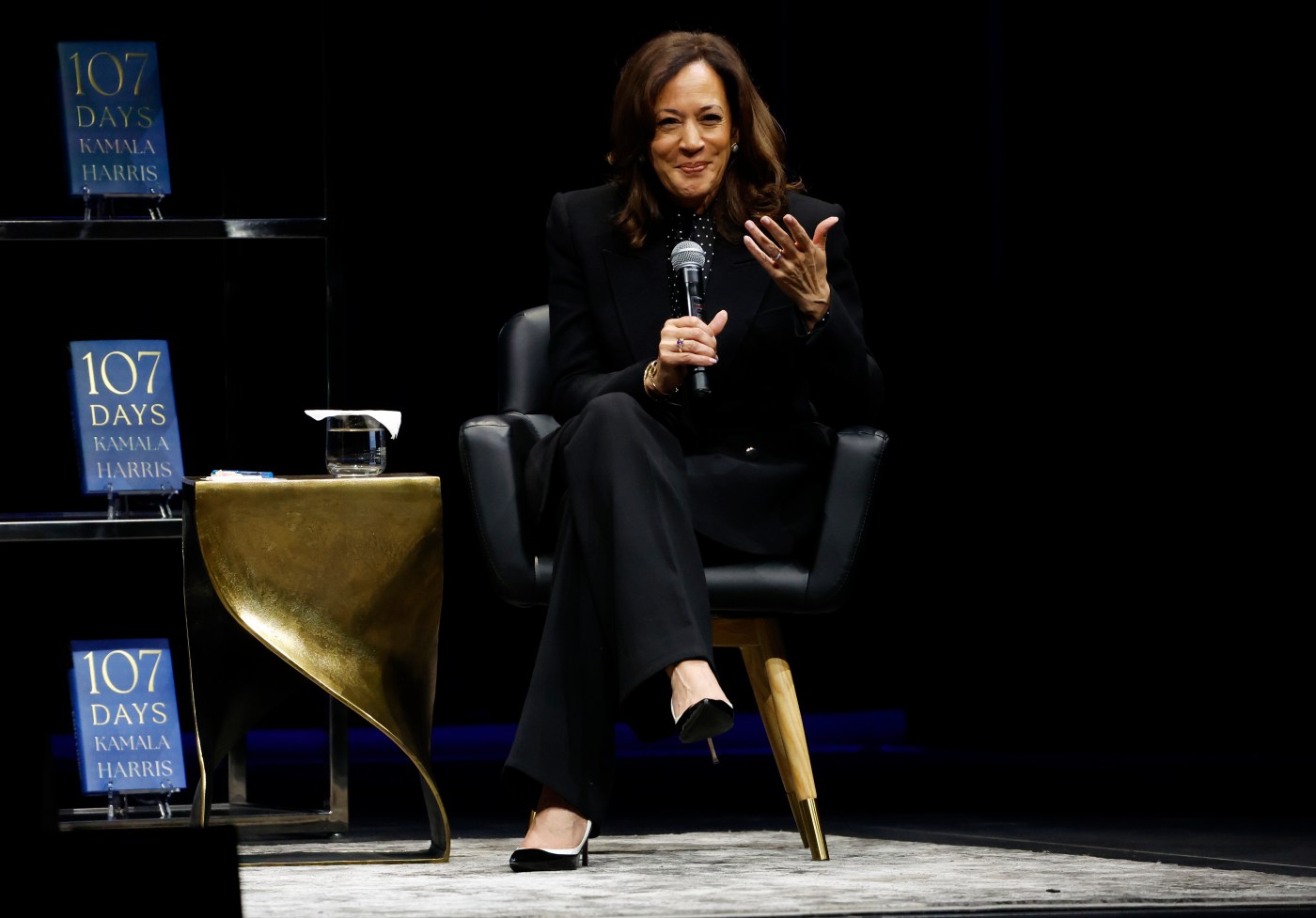
Two absolute essentials must accompany any candidate who seeks to make a serious run for president, or even lesser but still powerful jobs like governor or U.S. senator: No one can make a serious run without serious funding. So multiple sources of big money are a must, as are major allies.
Related Articles
Elias: UCLA too prominent a funding-cut target for Trump to pass up
Elias: Blame RFK Jr., Trump for any deaths resulting from lack of vaccines
Elias: Trump ‘War on California’ continues unabated in many subtle ways
Not only do these allies go on the road as surrogates at times, but they recruit other supporters, some of whom provide the first essential, big money. For a candidate to alienate the most powerful individuals in their political party even before a race gets going seriously is an unheard-of no-no.
That’s what former Vice President Kamala Harris may have done, though, in her campaign memoir, “107 Days,” published during a season when many candidates usually issue bland autobiographical tomes that purport to carry important messages aimed to draw millions of voters.
Most don’t attract many voters and contain few important messages. However, the new Harris book is different. It’s almost like a deliberate effort to alienate potential supporters and snub her nose at the money they could raise.
Take her complaint about Illinois Gov. J.B. Pritzker, whom she briefly considered as her vice presidential running mate in 2024: He was initially reluctant or noncommittal when she asked for his endorsement just after former President Joe Biden gave up the Democratic nomination for his office and handed it off to Harris.
Did Pritzker want a day or two to determine whether the party would accept Biden’s edict and quickly anoint Harris as the candidate? Did he want to be offered an incentive? Both would have been reasonable responses to Harris’s quick ascension. His pace did not satisfy Harris, though, a fact now announced in print.
So much for Pritzker’s support if Harris runs again in 2028. And there’s her response to California Gov. Gavin Newsom, her fellow endorsee of former San Francisco Mayor Willie Brown and her longtime supposed friend and stablemate (they’ve shared campaign consultants).
She claims he didn’t take her first call after Biden dropped out, texting back, “Hiking. Will call back.” He didn’t do that. So even though he did issue a full endorsement within hours, that was too slow for Harris, who apparently expects her colleagues to ask “How high?” the moment she says “Jump.”
If this sounds like minor byplay, that’s what it should have been. It probably wasn’t worth a mention in her book, or any other, but reflects an irritability that hasn’t worked well for any modern presidential candidate except Donald Trump. The rest have all tried to appear universally amiable.
Harris sprinkled other, similar, bon mots though her book. Pennsylvania Gov. Josh Shapiro, whom she considered for vice president, is “overly ambitious (and) confident,” Harris writes, and “would want to be in the room for every major decision.” Shouldn’t any veep want that?
Then there’s Pete Buttigieg, the former mayor of South Bend, Indiana, and Biden’s transportation secretary. He would have been “too big a risk,” as she didn’t believe the electorate was prepared to back both a gay man (Buttigieg) and a Black woman (herself) simultaneously.
She writes that Buttigieg was actually her first choice for vice president, though, even though she picked Minnesota Gov. Tim Walz. What now, if Walz is re-elected next year? If someone wanted to alienate powerful Democrats, it would be difficult to do it more thoroughly than Harris seems to have tried to do.
Mark Kelly, a senator from Arizona, “lacks political battle scars.” Does that mean he’s too popular, because he certainly has other kinds of scars as the steadfast, supportive husband of onetime assassination target Gabby Giffords.
All of this raises the question of whether Harris really wants to run for president again. Would she have criticized so many powerful Democrats if she were hungry for their support and the further backing they could bring along in 2028?
Harris plainly didn’t want to be governor of California or go through the rough campaign that she’d need to win that job. Now she’s also given voters plenty of reason to wonder how much she wants to be president.
Email Thomas Elias at [email protected], and read more of his columns online at californiafocus.net.